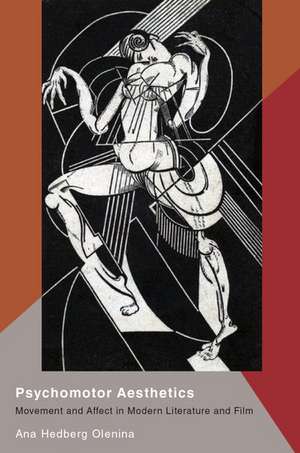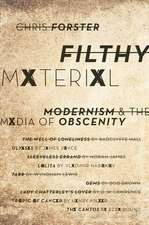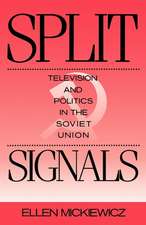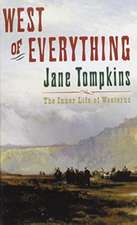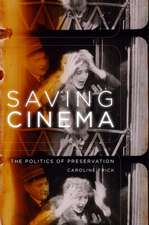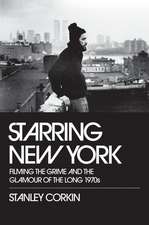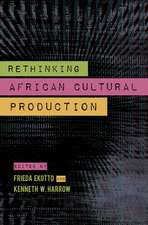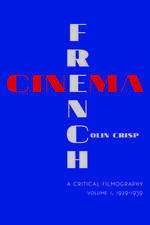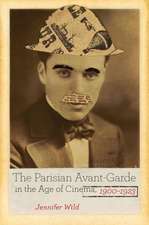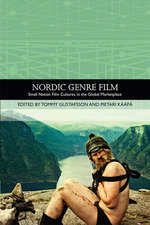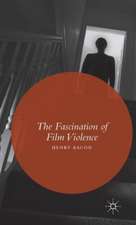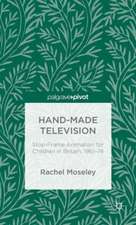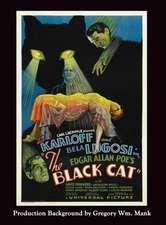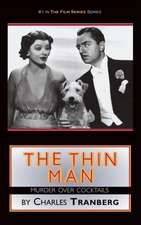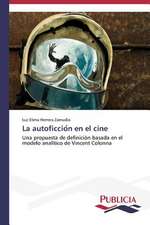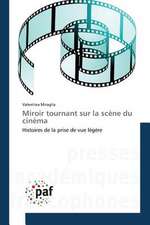Psychomotor Aesthetics: Movement and Affect in Modern Literature and Film
Autor Ana Hedberg Oleninaen Limba Engleză Paperback – 22 iun 2020
Preț: 253.55 lei
Preț vechi: 275.64 lei
-8% Nou
Puncte Express: 380
Preț estimativ în valută:
48.52€ • 50.79$ • 40.14£
48.52€ • 50.79$ • 40.14£
Carte tipărită la comandă
Livrare economică 26 martie-01 aprilie
Preluare comenzi: 021 569.72.76
Specificații
ISBN-13: 9780190051266
ISBN-10: 0190051264
Pagini: 416
Ilustrații: 88 figures
Dimensiuni: 231 x 155 x 25 mm
Greutate: 0.59 kg
Editura: Oxford University Press
Colecția OUP USA
Locul publicării:New York, United States
ISBN-10: 0190051264
Pagini: 416
Ilustrații: 88 figures
Dimensiuni: 231 x 155 x 25 mm
Greutate: 0.59 kg
Editura: Oxford University Press
Colecția OUP USA
Locul publicării:New York, United States
Recenzii
This book is a fabulous addition to a growing literature on the crucial early twentieth-century exchanges between physiological psychology, aesthetics, and early modernism in the arts, here focused especially on Russia and the early Soviet Union.
The book comprises interesting stories from film history and curious examples of transgressions of disciplinary divides. I highly recommend Olenina's stimulating and compelling book as a good and useful read for scholars across disciplines.
Olenina's groundbreaking book introduces new material that allows for a radical rethinking of Russian modernism. It is a well-researched interdisciplinary history with far-reaching consequences for contemporary aesthetics at large. Very different fields of artistic activity and very different names (both well-known and forgotten ones) suddenly join to form a new and illuminating constellation of facts, works, and ideas, permitting to read the apparently well-known story of Russian avant-garde in a surprising way. In the study, historical material converges with recent attempts in post-Kantian aesthetics to overcome the role of the subject. The author's focus on kinesthetics and depersonalization opens up a possibility of thinking art beyond the limits of representation. Highly recommended for anybody interested in the history of modernism and posthuman (post-subjective) culture.
A fascinating study about the expansion of modern psychology into the field of artistic practice and the countermovement of poets and film directors into the explorations of arts' effects and affects, stretching from the experiments of Russian physiologists and theories of Soviet Futurists and Constructivists to the post humanist condition.
Psychomotor Aesthetics offers a fantastic addition to the growing collection of scholarly work on modernism in its relation to contemporaneous sciences of the body. Impressive in its geographical reach, the book makes a compelling case for placing corporeal movement (and specifically the bi-directional relation between bodily motion and mental states) at the center of intersecting and competing modernist aesthetic projects, from futurist poetry to Eisensteinian filmmaking.
The book comprises interesting stories from film history and curious examples of transgressions of disciplinary divides. I highly recommend Olenina's stimulating and compelling book as a good and useful read for scholars across disciplines.
Olenina's groundbreaking book introduces new material that allows for a radical rethinking of Russian modernism. It is a well-researched interdisciplinary history with far-reaching consequences for contemporary aesthetics at large. Very different fields of artistic activity and very different names (both well-known and forgotten ones) suddenly join to form a new and illuminating constellation of facts, works, and ideas, permitting to read the apparently well-known story of Russian avant-garde in a surprising way. In the study, historical material converges with recent attempts in post-Kantian aesthetics to overcome the role of the subject. The author's focus on kinesthetics and depersonalization opens up a possibility of thinking art beyond the limits of representation. Highly recommended for anybody interested in the history of modernism and posthuman (post-subjective) culture.
A fascinating study about the expansion of modern psychology into the field of artistic practice and the countermovement of poets and film directors into the explorations of arts' effects and affects, stretching from the experiments of Russian physiologists and theories of Soviet Futurists and Constructivists to the post humanist condition.
Psychomotor Aesthetics offers a fantastic addition to the growing collection of scholarly work on modernism in its relation to contemporaneous sciences of the body. Impressive in its geographical reach, the book makes a compelling case for placing corporeal movement (and specifically the bi-directional relation between bodily motion and mental states) at the center of intersecting and competing modernist aesthetic projects, from futurist poetry to Eisensteinian filmmaking.
Notă biografică
Ana Hedberg Olenina is Assistant Professor of Comparative Literature and Media Studies at Arizona State University.
